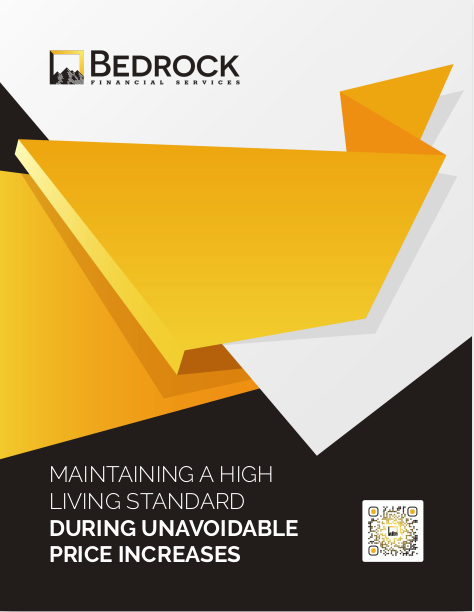Key Takeaways
-
Retention isn’t a conversation that begins at renewal—it’s a relationship that begins at the very first touchpoint. Your client’s loyalty is shaped more by consistent engagement than by last-minute incentives.
-
Treating clients like lifelong partners creates deeper trust, more referrals, and ultimately, a higher long-term ROI than constantly chasing new leads.
Stop Thinking of Retention as a Single Event
If you’re only focusing on retention during renewal season, you’re starting far too late. In 2025, clients expect more than transactional interactions. They expect consistency, connection, and proactive value.
Retention doesn’t begin when a policy expires or a portfolio review is due. It begins:
-
When your onboarding process makes them feel understood
-
When your first check-in feels like a partnership, not a pitch
-
When you deliver useful content or updates without being asked
The earlier you demonstrate that you plan to stick around, the more likely your clients will do the same.
Every Interaction Sends a Message
In today’s hyper-competitive financial services landscape, every message, meeting, and missed call speaks volumes. If you only engage when you’re up for renewal, the message is: “I’m here to keep your business.” But if you show up consistently, your message becomes: “I’m here for the long haul.”
Make use of small but powerful signals:
-
A personalized email when a new regulation changes their investment options
-
A reminder about tax season tied to their specific portfolio activity
-
An annual review meeting that’s booked well before they ask for it
These are the subtle cues that communicate reliability—and reliability is what retains clients.
Retention Lives in the CRM, Not Just the Calendar
You can’t treat what you don’t track. If you’re only using your CRM to store basic client info and renewal dates, you’re missing the point. Use it to track engagement moments and relationship quality.
Start by setting recurring tasks in your CRM such as:
-
Quarterly value check-ins
-
Personalized birthday or milestone messages
-
Notes on client preferences, family details, or long-term goals
The more detailed your system, the more personalized your outreach—and personalization is the currency of trust in 2025.
The Loyalty Curve Has Shifted
Client loyalty is no longer just about tenure—it’s about alignment. If your communication and values resonate with your client’s expectations, they’ll stay. If not, they won’t hesitate to leave.
What today’s clients want to see:
-
Transparency: Be clear about what you do and what you charge.
-
Proactivity: Don’t wait for them to flag a problem—prevent it.
-
Education: Explain market shifts or policy changes in ways they can understand.
This isn’t about over-servicing. It’s about real-time relevance. Stay ahead, and your retention rate will follow.
Education Creates Stickiness
Clients stay where they feel empowered. And nothing empowers a financial services client more than education.
Offer learning opportunities throughout the year that feel curated, not generic. This might include:
-
A webinar in April about Q2 market trends
-
A mid-year review template sent in July
-
A short fall checklist in October to prep for benefits season
Clients who understand their options don’t just stay—they advocate for you.
Referral-Worthy Service Starts Early
You can’t expect referrals if you only impress people at renewal time. Build a reputation for excellence from day one.
Look for ways to exceed expectations before your client even knows what to expect:
-
Share a quick financial snapshot during onboarding that shows where they stand
-
Anticipate a pain point before it arises, and offer solutions early
-
Communicate your process clearly so they always know what’s coming next
These small moves make your client feel valued—and valued clients refer others.
Renewals Should Feel Like a Review, Not a Rescue
When clients approach renewal, they shouldn’t be surprised by what they’re offered. If they are, it means your touchpoints have been too few or too thin.
A renewal conversation should confirm what they already feel:
-
That you’ve been paying attention
-
That their needs are understood
-
That the proposed plan aligns with where they’re headed
If a renewal feels like a rescue mission, you’ve waited too long. If it feels like a review, you’ve been doing it right all year.
Automate Without Losing the Human Touch
Automation is essential for scale, but dangerous for retention when misused. You don’t want to send a cold annual reminder about renewal. You want to send a warm, relevant message that feels personal.
Use automation to support—not replace—relationship-building:
-
Automate prompts for check-ins, but add a personal note each time
-
Use client segmentation to tailor educational content by need or stage
-
Schedule follow-ups after milestone events to stay relevant
In 2025, AI can support your client work—but it can’t replace empathy.
Retention Requires a Year-Round Mindset
Retention isn’t a box to check at the end of a sales cycle. It’s a commitment you demonstrate month after month. Build your calendar around it:
January – Send a financial wellness check-in
March – Highlight tax tips tied to their services
June – Offer a mid-year review meeting
September – Educate about Q4 prep and open enrollment basics
December – Confirm satisfaction and set goals for next year
This steady cadence turns renewals into routine affirmations of trust.
Turn One-Year Clients into Five-Year Clients
Your long-term ROI doesn’t come from the one-year sale. It comes from reducing churn and increasing lifetime value. But retention isn’t accidental—it’s intentional.
Strategies to extend your average client tenure:
-
Build a 12-month engagement plan per client segment
-
Set client review meetings at regular intervals—don’t wait for them to ask
-
Create annual recap reports that highlight value and progress
When your client knows you’re looking ahead for them, they’ll stay ahead with you.
Retention Is a Marketing Strategy
Too often, marketing focuses on acquisition. But what if your best marketing strategy was retention?
Think about what consistent retention does for your brand:
-
Fewer dissatisfied clients means fewer online complaints
-
More happy clients means more positive reviews and referrals
-
Stronger client loyalty makes your book of business more predictable
Retention isn’t separate from growth. It powers it.
Why We Build for Retention at Bedrock
If retention is an afterthought, you’re already behind. In the financial services space, your brand is only as strong as your last client experience. That’s why we’ve built our tools, training, and automation systems to prioritize long-term relationships over short-term transactions.
At Bedrock Financial Services, we help professionals like you:
-
Set up systems that support continuous engagement
-
Automate intelligently with personalization at the core
-
Build a brand that earns trust from the first interaction to the fifth renewal
If you’re ready to treat every client like a lifetime client, we’re ready to help you get there. Sign up today and let’s build your client retention strategy from the inside out.







